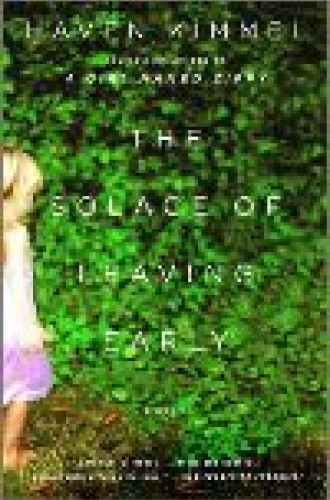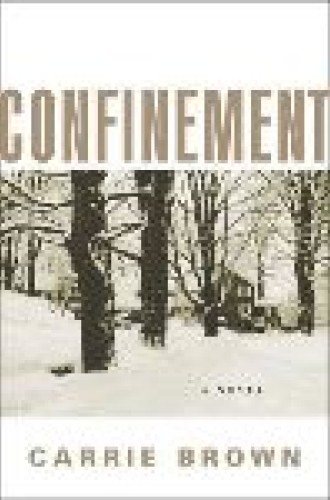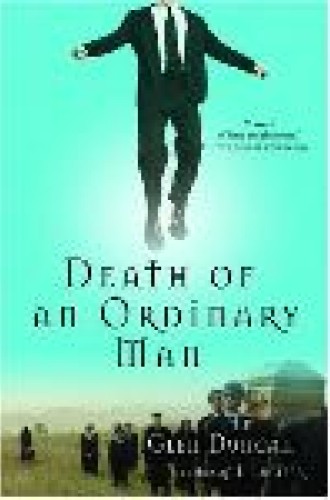Call of eternity

Ideas of Heaven: A Ring of Stories

The Solace of Leaving Early

Ideas of Heaven: A Ring of Stories

Confinement

Death of an Ordinary Man
To me, the best place to read any great book is at the ocean side, a sun-drenched, dune-crested symbol of eternity. Though it may be cold where you are, picture me under an umbrella at the shore. Beside me on the towel lies a sandy collection of recent novels and volumes of stories: books full of unrequited lovers, wandering ghosts, small-town intellectuals, missionaries, poets. Not one is religious in the Christian-bookstore sense, which is to say the books are full of sex, and nobody gets saved (or raptured). Still, these are all theological stories: they have a refreshing preoccupation with the deepest religious questions, framed not in the literal, rational world but in the world of poetry and the particular, most often the context of frail human life.
Which is no surprise. The call of eternity is ever upon us, but its signal seems weak compared to the hungers, comforts and agonies of the body—all overwhelming, some transporting. Not even art can bypass the physical world. What art can do is use the visible to speak of the invisible, the known to speak of the unknown. This is truth in its sacramental form, where a metaphor is like a little Eucharist: it’s a bit of eternity within something earthly, even ordinary.
Few things are as ordinary, or as ripe for metaphor, as death. Glen Duncan’s Death of an Ordinary Man begins morbidly, at the graveside of Nathan Clark, a middle-aged history teacher. Nathan’s mourners include his guilty ex-wife, his best friend, his tormented son and daughter and his self-loathing father. Nathan himself hovers near, discovering that all has changed. His body has been amputated from his soul, and yet consciousness continues. Is there anyone else out here in this limbo—God, for instance? Nobody answers, but something drives Nathan to understand the mystery of his own death.
As he enters the thoughts and emotions of those still living, Nathan finds the pain of discovery hard to bear. Longing for rest, he keeps returning to a mysterious room in his house, a room that contains just a bed and a door. The bed’s meaning is obvious enough: the crisp sheets promise an end of troubles, relief from suffering. But the door both frightens and compels him. It’s the sacramental focus of the story, the meeting of the temporal and the eternal. Eternity is always close to Nathan, and by the end of the book, he’ll have to choose whether to go into it. Yet the greatest mystery is the question of what holds him in this world. The answer seems to be love: both Nathan’s love for his family and his need to love them fully, almost perfectly, before he leaves the earth.
The heroine of Haven Kimmel’s novel The Solace of Leaving Early has given up on love. Langston Braverman is no ghost, but she acts like one. A grad school dropout, she haunts her old bedroom in her parents’ attic, rarely going out except to walk her dog and curse the cretinous citizens of Haddington, Indiana. Her mother begs her to wake up to the world, but Langston remains indifferent to everything and everyone around her; when she hears of a childhood friend’s death, she never even wonders about the details. When her mother begs her to go to the funeral, she’s unapologetically rude: “I don’t want to hear how Alice is sending us a postcard from heaven saying ‘Wish you were here!’ or how she fulfilled the greatest ambition of a woman’s life, mothering, or how Jesus is waiting to gather us all in like little sheep.”
By the time Langston learns the horrifying truth about Alice Baker-Maloney, her redemption is well on its way. Her loving, perspicacious mother drafts her to baby-sit Alice’s little daughters, Immaculata and Epiphany, who changed their names around the time they began receiving visions from Mary in the branches of a tree (soon after witnessing their mother’s death). Langston resists her new role until she meets the children. Then, almost effortlessly, she becomes their friend and champion, even a celebrant in their small communion. It’s as if miracle is an easier fit for Langston than ordinary life. The children’s grieving pastor, Amos Townsend, joins her on her journey, and the book becomes an unlikely love story.
Like Death of an Ordinary Man, The Solace of Leaving Early focuses on a sacramental joining of the forever to the now. It begins with Langston having a vision from her attic window of the little girls in fairy costumes, walking out of the trees into the light. She compares the event to a birth and realizes that this was the very moment at which the world changed for her: “We are all walking into and out of the light, every day, and a thousand million times, more than we can ever count or claim to recognize, all the elements converge toward what can only be called a miracle, so often it happens that it must be the very nature of the world.”
The theme of the miraculous in the ordinary is also important in Joan Silber’s Ideas of Heaven, a collection of short stories that was nominated last year for the National Book Award. Weaving together Buddhist and Christian traditions, Silber creates a tapestry of six lives connected through time and space. The characters seem impossibly different from one another: a Renaissance poet, a misogynist Broadway dancer and a 19th-century missionary, to name just three. Only the reader has a view of the threads connecting their disparate lives, the web that connects everyone in a living network.
Most of Silber’s characters look for meaning first in love rather than in religion. When sex fails, they usually look for more sex (“One nail drives out another,” is the proverb quoted by Gaspara Stampa, a poet who falls in love with her own suffering). But sex is trickily sacramental, and those who seek it often find themselves seeking God. Here Buddhism is usually the path from passion to the spiritual life. For some, Zen offers a way to transcend the urgency of sex; for others, a way to find forgiveness or relief from pain. The single Christian character in the book, a missionary to China, finds transcendence and comfort in the hope of unity with Christ. That hope is still parallel to sex: early in the story she speaks of sex as a portal to motherhood: “a state so much like fever—a spell or melting fit, a possession by great forces.” Just before her martyrdom she says, “Our deaths were pulsing in us . . . our sweet kingdoms within. . . . Why was it so hard to get across this gate? I wanted the other part to begin. I had such longing. We were so near. We had to be shattered to get to Him. I closed my eyes for it to begin.”
Silber writes beautifully about Christian hope, though she seems to regard the soul’s unity with Christ as a reference to what Buddhists would call the union of the individual with the cosmos. That uncertainty is troubling to this writer. Which brings us to Carrie Brown’s Confinement, a book about not knowing who God is or what God really wants.
It’s the story of Arthur Henning, a Jewish tailor who makes it out of Germany early in World War II only to lose his wife and baby daughter in the London blitz. With the help of some Americans, Arthur brings his young son, Toby, to New York, where he finds work as a chauffeur. Once out of danger, Arthur learns that there’s no real refuge from fear. He spends the next several decades in perpetual terror of loss: the world seems arbitrary, cruel and unpredictable. His only joys are his son and his son’s little friend Agatha, daughter of his employer.
Arthur wonders a lot about God. He remembers his horror at watching a neighbor, Dr. Ornstein, being beaten by Nazi soldiers while waiting for his children to meet him at a cafe. In Arthur’s imagination, Dr. Ornstein comes to life as the personification of his own fear and woundedness: he represents the death of the reasonable, decent God Arthur once believed in. The new God is one of arbitrary cruelty, one who can allow millions of Jews to die and not rise up to prevent it. Those two extremes are actually two different pictures of Arthur himself. He’s an old man, crushed and humiliated, helpless to save the children he loves; he’s also a petty tyrant who eventually drives his son away with his coldness and inexplicable cruelty.
Arthur will ultimately find his redemption in relationships. A woman will sacrifice her own happiness for his, a child will offer the promise of an innocent start. Dr. Ornstein will fade in his memory. Arthur last looks for the old man through a car window, but the light blinds him: “His own face looked back at him when he stooped down.” Love has begun to heal Arthur’s fractured world.
Sometimes artists peddle human love as a substitute for religion. And who can blame them? At their most sublime, earthly loves (sex, parenthood, even friendship) seem to answer all questions, or at least to shout them down. But those loves are only sacramental pathways into God’s country. Like birth, like death, like other temporal realities great and mundane, love is a door that opens onto eternity. The best theological writers—and here are four of them—lead us to the mysterious room where that door waits, both compelling and terrifying. Then, like Nathan Clark or Arthur Henning or Langston Braverman, we begin to long for what’s ahead. As Rainer Maria Rilke said of Gaspara Stampa (the real-life poet, who appears in Ideas of Heaven), “Women like Stampa hurl themselves after the man they have lost, but with the first steps they overtake him, and in front of them is only God.”




